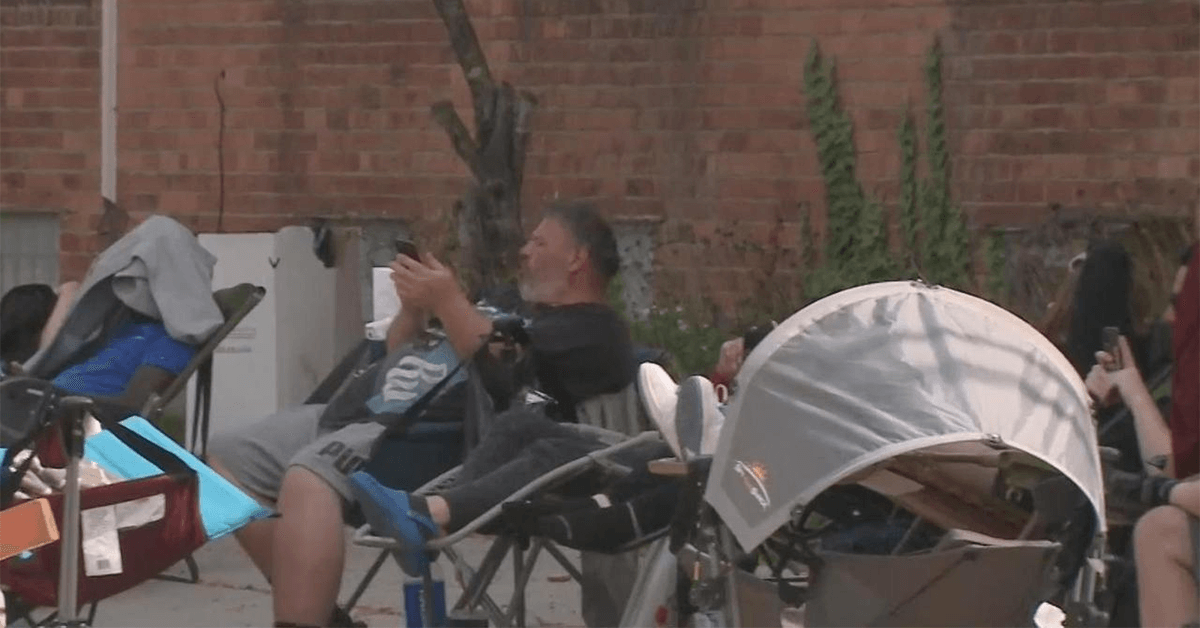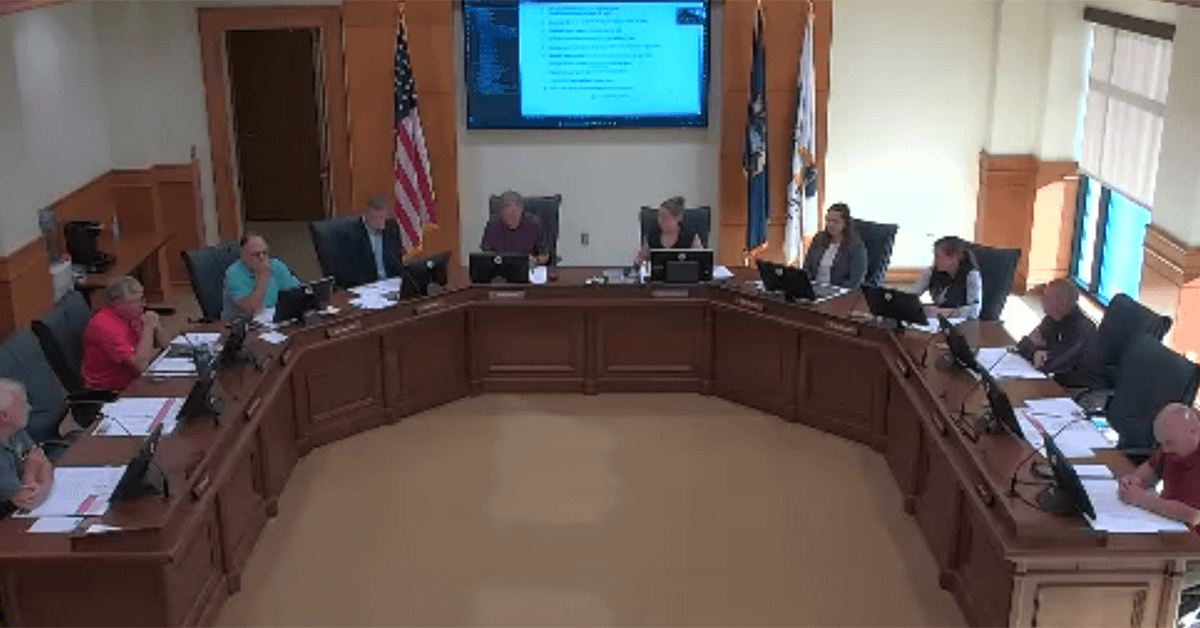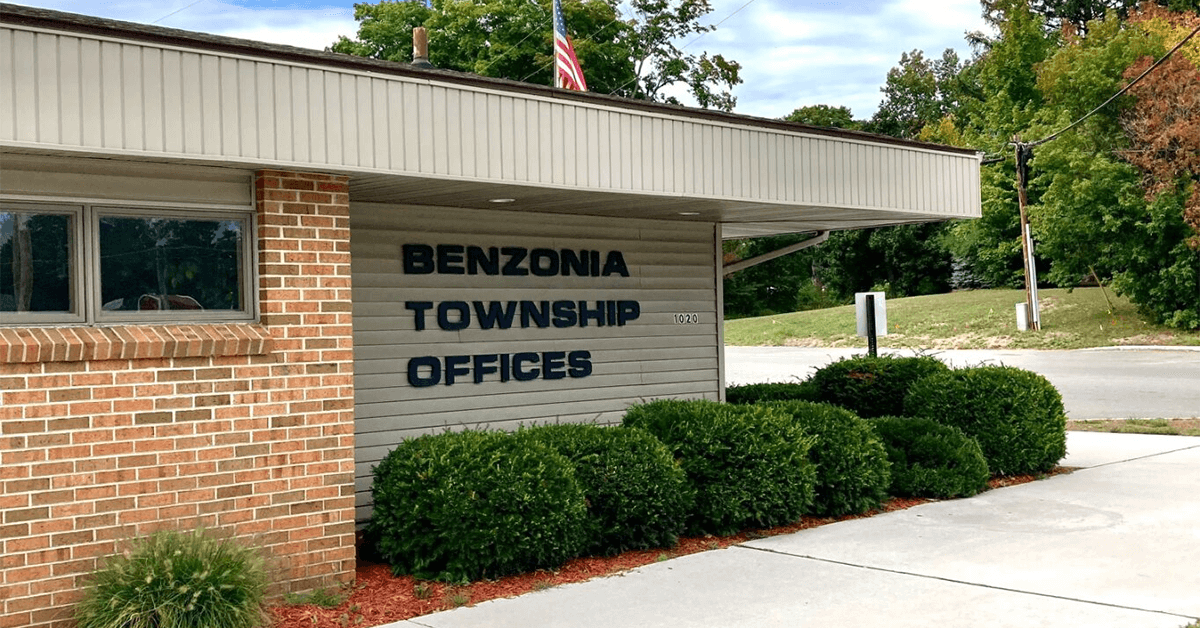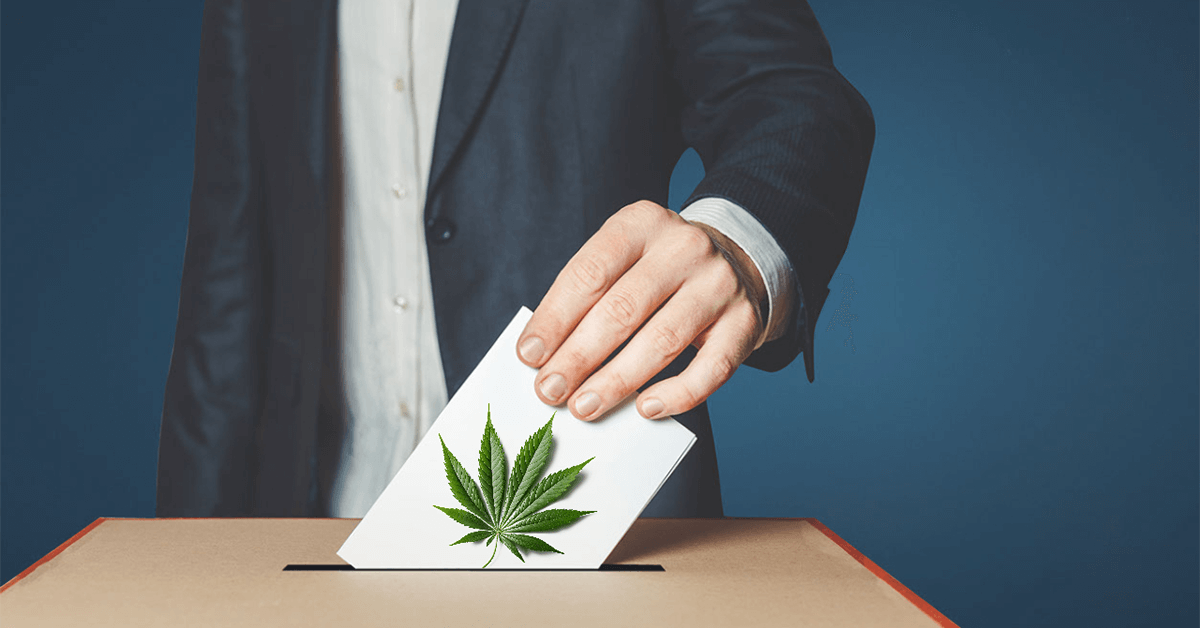DOOBIE Act Gains Senate Support, Aims to End Employment Bias for Cannabis Use

A U.S. Senate committee has approved a bill aimed at preventing federal agencies from using past cannabis consumption as a basis for denying employment or security clearances. The bipartisan measure, known as the Dismantling Outdated Obstacles and Barriers to Individual Employment (DOOBIE) Act, passed the Senate Homeland Security and Governmental Affairs Committee in a 9-5 vote. Introduced by Senator Gary Peters (D-MI), the legislation represents a significant shift in federal hiring practices to better align with the growing trend of cannabis legalization at the state level.
This measure is part of an ongoing effort to ensure that prior marijuana use does not automatically disqualify candidates from public service. Currently, federal regulations allow agencies to reject applicants for federal jobs or security clearances based on past marijuana use, regardless of whether the applicant's state has legalized cannabis for medical or recreational use. The DOOBIE Act would change that by making it illegal for federal agencies to deny employment or security clearances solely on the basis of an individual's past use of marijuana.
Aligning Federal Policy with a Changing Legal Landscape
Senator Peters emphasized the need for federal hiring policies to reflect the rapidly evolving legal and cultural views on cannabis. "The federal government must adapt its hiring practices to reflect the evolving legal and social landscape of our nation," Peters said in a statement. "My bill takes a crucial step by aligning federal policy with existing agency guidance, ensuring that past marijuana use alone doesn't automatically disqualify talented individuals from public service. This approach will expand our talent pool and create a fairer, more inclusive hiring process."
The DOOBIE Act's approval in committee marks the first step in a legislative process that could lead to more equitable hiring practices across the federal government. All Democratic members of the committee, along with one Independent and Republican Senator Rand Paul (R-KY), supported the bill. The remaining Republican members opposed the measure.
The legislation now heads to the full Senate for further consideration. If passed, it would significantly alter how federal agencies handle employment applications from individuals who have used marijuana in the past.
Key Provisions of the DOOBIE Act
Under the DOOBIE Act, federal agencies would no longer be allowed to disqualify job candidates or deny security clearances solely based on past marijuana use. The bill outlines several key areas of reform:
-
Federal Employment: Agencies would be prohibited from using prior cannabis use as the sole factor in determining employment eligibility or suitability for federal jobs.
-
Security Clearances: The legislation also prevents federal agencies from denying security clearances based solely on past cannabis use. This would provide clarity and reassurance for those who may have previously avoided applying for federal positions due to concerns about being disqualified for cannabis consumption.
-
Credentialing: Federal employees would not be denied personal identity verification credentials—used to access federal facilities and information—based solely on prior marijuana use.
-
Oversight and Implementation: The bill includes a provision for oversight, ensuring that the Office of Personnel Management (OPM) and the Director of National Intelligence (DNI) update their policies to reflect these new rules. The U.S. comptroller general will be responsible for assessing the implementation of the law and ensuring compliance by federal agencies.
-
Regulatory Updates: OPM and DNI would be required to revise their regulations to communicate that past marijuana use is not a barrier to federal employment. The Director of National Intelligence, in particular, has affirmed that current policy already discourages agencies from denying security clearances for past cannabis use, but this legislation would formalize that stance across all federal agencies.
Addressing the Disconnect Between Federal and State Law
As of 2024, 24 states and Washington, D.C., have legalized both medical and recreational cannabis use, while an additional 14 states permit cannabis for medical purposes. However, federal law continues to classify marijuana as a Schedule I controlled substance, leading to a disconnect between state policies and federal hiring practices. This has discouraged many qualified candidates from pursuing federal positions due to concerns about being automatically disqualified for prior cannabis use.
The DOOBIE Act aims to address this disconnect, aligning federal hiring policies with current state laws and cannabis legalization trends. By removing the stigma attached to past marijuana use, the bill seeks to broaden the pool of qualified candidates for federal positions and ensure that the government can compete with the private sector for top talent.
Broad Support and Some Opposition
The DOOBIE Act has garnered support not only from Senate Democrats but also from Republican lawmakers such as Senator Rand Paul, who voted in favor of the bill in committee. However, opposition remains strong among some Republicans, who argue that cannabis use, even in the past, should be a disqualifying factor for federal employment.
The measure has a counterpart in the House of Representatives, the Cannabis Users Restoration of Eligibility (CURE) Act, which seeks to provide similar protections for federal job applicants. A previous version of the bill, introduced last year, received bipartisan support but faced challenges during the legislative process. The DOOBIE Act marks the latest effort to address those concerns and push for reforms in federal employment practices.
Next Steps
The DOOBIE Act now moves to the full Senate, where it will be debated and voted on in the coming weeks. If passed, it would mark a major step forward in aligning federal employment policies with the broader movement toward cannabis legalization across the United States.
Conclusion
The DOOBIE Act represents a significant step toward ensuring that past marijuana use does not unfairly penalize individuals seeking federal employment or security clearances. As more states move to legalize cannabis, the bill addresses a growing need to modernize federal hiring practices and remove outdated barriers to public service. With bipartisan support and a companion bill in the House, the legislation has the potential to reshape federal employment policies and open the door to a more inclusive and competitive workforce.
Applicants Camp Outside Redford Township for Cannabis Dispensary Licenses

After months of anticipation, Redford Township is set to open its doors to cannabis dispensary applications, beginning on October 3rd. This significant move has drawn considerable attention from prospective business owners, some of whom have already started lining up outside the Township Hall, despite the application process still being weeks away.
The line of hopeful applicants started forming on September 10th, immediately following the Township's decision to begin issuing licenses. Some of those waiting in line are working on behalf of cannabis companies, rotating in shifts 24/7 to maintain their spot. Township leaders have observed the unusual level of commitment among these potential licensees. "People have been to concerts and stood in line overnight. I've just never seen anybody stand in line for this amount of time," said Pat McRae, Redford Charter Township Supervisor.
With no cap on the number of dispensary licenses available, the Township will issue permits based on location criteria. Dispensaries must adhere to buffer zone regulations, meaning they cannot be placed within 1,000 feet of schools, public parks, or daycares, nor can they be within 2,500 feet of another cannabis business. This setup ensures a controlled expansion, despite the absence of a numerical cap on licenses.
Although applicants are eager to get in on the business, the industry landscape in Michigan presents challenges. Jerry Millen, owner of Greenhouse of Walled Lake, expressed concerns about market oversaturation. "A lot of stores that open now aren't getting customers... they're trying to give product away, and the prices are so cheap that they're losing money," Millen explained. Michigan's cannabis market, however, continues to flourish, with the state setting a new record in August 2024, selling over $295 million worth of cannabis. The state is projected to reach over $3.3 billion in sales by the end of the year, driven in part by low prices.
While the revenue prospects for Redford Township remain uncertain, McRae is optimistic. "The revenue will be good. I don't think it's going to be super, but I think it's gonna be good revenue," McRae said. He also pointed out that in other communities, cannabis businesses have revitalized buildings and maintained high security standards, which could similarly benefit Redford.
The application process in Redford comes with a $5,000 fee, and reviews will take six to eight weeks. Given the strong interest, officials have noted that some applicants have devised self-policing systems to ensure fairness. "They've been taking pictures of each other to see who's in line. There's a camera outside for security, so if there's any dispute, we can check that," McRae added. Applicants must remain in line or have someone hold their place, as leaving without a replacement means forfeiting their spot.
As the October 3rd application date approaches, Redford Township continues to prepare for the influx of applicants, which signals the community's entrance into Michigan's booming cannabis industry. The excitement is palpable, but so are the challenges that may accompany the expansion.
Proposed Changes to Coldwater's Cannabis Grow Regulations

A public hearing is scheduled for the next Coldwater Planning Commission meeting to discuss the potential removal of cannabis grow establishments from the special land use approval process in the city's industrial zones. The hearing will take place on October 7th, following the Commission's consensus on Monday night to move forward with the proposal.
Discussions around this potential policy change have been ongoing for nearly two years. Currently, both grower and excess grower licenses are permitted in areas zoned D-2 Heavy Industrial, contingent upon special land use approval. Similarly, cannabis microbusinesses require special land use approval to operate in C-4 General Business zones.
Since May 2021, four special land use requests have been approved, but only one business, Craft Leaf LLC at 211 West Garfield Avenue, has obtained both state and city licenses, according to City Manager Keith Baker. No applications for microbusinesses have been submitted or approved to date.
City Attorney Amanda O'Boyle clarified that the proposed changes would not affect Craft Leaf LLC. In her memo to the Planning Commission, she suggested including a sunset provision that would classify any pre-existing cannabis grow licenses within the D-2 District as legal non-conforming uses after a specified date. O'Boyle also noted that the provision allowing cannabis retailers as an accessory to grow operations and processors remains intact.
Judge Removes Cannabis Ban Proposal from Benzonia Township Ballot

A court order has led to the removal of a ballot proposal aimed at banning adult-use cannabis establishments in Benzonia Township. The proposal asked voters whether the township should pass an ordinance prohibiting adult-use cannabis businesses, referencing provisions in the Michigan Regulation and Taxation of Marijuana Act to justify the ban.
Benzonia Township currently has four adult-use cannabis businesses, with Lume being the first to open in January 2020. The petition to place this ban on the ballot was initiated by Mary Haan, who stated in an interview with the Record Patriot that she was the sole petition circulator. This marks her sixth attempt to get a measure banning cannabis businesses on the ballot.
The decision to remove the proposal came after a September 3rd hearing in Benzie County's 19th Circuit Court. Judge David Thompson granted a Writ of Mandamus, ruling in favor of the plaintiff, Prosperity for Benzonia, stating the proposal should not have been placed on the ballot.
In an August 19th brief filed on behalf of Prosperity for Benzonia by attorney Kevin Blair of Honigman Business Law Firm, it was argued that the petitions submitted were flawed. According to the brief, the petition forms contained inconsistencies, such as alternating between the terms "ordinance" and "ordinances" and "Benzonia Township" and "Benzonia Townships." Furthermore, the petition only presented a general concept rather than a specific ordinance.
The brief highlighted these issues, noting, "The conceptual proposal language on the Haan petitions cannot possibly be deemed to constitute the requisite actual ordinance because it varies amongst petition sheets, and no iteration garnered enough signatures to appear on the ballot."
Blair expressed satisfaction with the court's ruling, telling the Record Patriot that the decision confirmed the proposal did not meet the legal requirements for inclusion on the ballot. "The ruling confirmed that this does not belong on the ballot and is ineligible to be printed on the ballot because it does not conform with Michigan election laws," Blair stated.
Court records reveal that a similar ballot proposal spearheaded by Haan was also removed in 2022 by a court order, with Prosperity for Benzonia serving as the plaintiff in that case as well. In 2021, Haan filed a lawsuit against Benzonia Township for not including a similar proposal on the 2020 ballot.
Haan expressed frustration over the September 3rd ruling, noting that she had not been informed of the hearing. She criticized the process, claiming the township's voters were being sidelined. "If a citizen hadn't walked into Benzonia Township and asked about the marijuana petition being on the ballot and alerted by the township clerk that it had been scrubbed, we never would have known anything," Haan said. "Our rights as a circulator certainly were pushed aside."
Haan also accused Prosperity for Benzonia of going to great lengths to prevent voters from having a say on the matter.
Oakland County Cities Prevail in Legal Battle Over Cannabis Ballot Questions

A recent ruling by the Michigan Court of Appeals has blocked ballot proposals in four Oakland County cities—Farmington, South Lyon, Sylvan Lake, and Wixom—that sought to allow cannabis retailers to operate within their limits. The court decision upholds the cities' efforts to keep these proposals off the November ballot.
The dispute centers around attempts by local ballot committees to amend city charters to permit two adult-use cannabis retailers in each city. The cities argued that these proposed amendments violated state law, specifically Michigan's cannabis regulations, and would improperly limit municipal authority over local business regulation. The proposed amendments also contained zoning and administrative provisions that, according to the cities, would strip them of their ability to manage business regulations and improperly favor the cannabis industry.
Judges Michelle Rick, Michael Kelly, and Philip Mariani agreed with the cities, ruling that voter-initiated petitions cannot be used to amend city charters to establish regulatory and licensing frameworks for cannabis businesses. The court emphasized that under Michigan's marijuana law, local regulations are allowed within specific parameters, but using a charter amendment to create a regulatory scheme exceeds what is legally permissible.
"The state marijuana act permits local regulations within certain set parameters, and to honor that intent, local regulation must be permitted within those parameters," the court wrote. The ruling reaffirmed the trial court's earlier decision, concluding that voter-initiated charter amendments are not a valid way to implement local cannabis regulations under the state's marijuana laws.
The court further clarified that the Michigan Regulation and Taxation of Marihuana Act (MRTMA) only allows voter initiatives in a limited capacity—specifically, when voters seek to prohibit or set the number of cannabis retail businesses in a community. The act does not extend the same authority to more detailed regulatory or zoning proposals, such as those in the contested ballot initiatives.
John Fraser, attorney for the ballot question committees, declined to comment on the Court of Appeals decision.
The legal battle began in July when the four cities filed a lawsuit in Oakland County Circuit Court, seeking to have the ballot proposals rejected. On August 8th, Judge Nanci Grant ruled in favor of the cities, stating that the requests made in the proposals went beyond the limits of state law. She noted that the ballot measures attempted to alter city charters in a way that conflicted with existing zoning ordinances and police powers granted to municipalities.
Judge Grant pointed out that Michigan's cannabis law is clear about the limits of voter-initiated petitions, which are confined to ordinances that either ban cannabis businesses or set the number of establishments allowed. Proposals that attempt to amend city charters to bypass these limitations, she said, are inconsistent with both the MRTMA and the Home Rule City Act (HRCA).
Despite the court rulings, the committees behind the ballot initiatives filed a counter-lawsuit, arguing that they were acting to safeguard the rights of voters. They claimed the cities were unjustly preventing the electorate from deciding on the issue, accusing the municipalities of "unlawful interference" and asserting that the cities' refusal to allow a vote was based solely on their opposition to the content of the petitions.
The legal tug-of-war is part of a broader conflict in Michigan, where municipalities have the authority to determine whether to permit recreational cannabis businesses. Since Michigan voters legalized cannabis in 2018, several cities have been involved in legal disputes over local licensing and zoning for cannabis businesses. Similar attempts to force cities to allow cannabis retailers have been seen in places like Rochester, Keego Harbor, Grosse Pointe Park, Birmingham, and Troy, though many of these efforts have been unsuccessful. Voters in Grosse Pointe Park, Keego Harbor, Rochester, and Birmingham rejected cannabis-related ballot initiatives, while Troy's initiative failed to make it onto the ballot at all.
As the legal landscape around cannabis continues to evolve, the ruling underscores the limited scope of voter influence over local cannabis regulations and reaffirms municipalities' rights to control how and where cannabis businesses operate within their boundaries.
DEA Delays Cannabis Rescheduling Hearing Until After Election

The Drug Enforcement Administration (DEA) has decided to delay the rescheduling of cannabis under federal law until after the upcoming election, a move that has generated significant reactions across the political and cannabis landscapes. This decision involves scheduling a public hearing on December 2nd to discuss the Biden administration's proposal to shift cannabis from Schedule I to Schedule III under the Controlled Substances Act (CSA).
Reactions Across the Spectrum
The announcement has sparked a range of responses from lawmakers, industry stakeholders, advocates, and opponents. Many supporters of cannabis reform had hoped for a final decision before the November election, which now appears unlikely. The delay introduces uncertainty, as the rescheduling might be left for the next administration, depending on the outcome of the election.
Congressman Earl Blumenauer (D-OR), co-chair of the Congressional Cannabis Caucus, expressed his disappointment, criticizing the DEA for dragging its feet on what he sees as a clear White House priority. Despite this frustration, Blumenauer remains optimistic that rescheduling will be finalized before President Biden leaves office. Blumenauer, who is set to retire at the end of this congressional term, also voiced hope that Vice President Kamala Harris, the Democratic nominee for 2024, will continue to push for rationalizing cannabis policy and ending the war on drugs.
On the other side of the aisle, Congressman Matt Gaetz (R-FL) reiterated his support for federal cannabis legalization. Gaetz, who has surprised some by opposing a Florida cannabis legalization initiative, has argued that reform should come through legislative channels rather than constitutional amendments. Gaetz's stance highlights the complex and varied positions on cannabis reform within the Republican Party.
Industry and Advocacy Responses
Bryan Barash, co-chair of the Coalition for Cannabis Scheduling Reform, took a measured approach to the DEA's announcement, acknowledging that a hearing was always a possibility. Barash emphasized that the coalition is prepared to participate and urged the DEA to conduct the hearing promptly. Despite the delay, Barash remains optimistic that the proposed rescheduling will be finalized by the end of the year.
However, the delay has had immediate financial implications. Cannabis stocks dropped following the announcement, reflecting the market's dashed hopes for a swift resolution. The uncertainty surrounding the timeline has introduced additional volatility to an already sensitive sector.
Advocates from groups like NORML and Americans for Safe Access (ASA) have weighed in on the decision, emphasizing the importance of the hearing in the rescheduling process. Paul Armentano, Deputy Director of NORML, pointed out that administrative hearings are a crucial part of changing cannabis's federal status. He highlighted the overwhelming scientific evidence supporting the rescheduling and criticized the DEA for its historical resistance to cannabis policy reform.
Steph Sherer, founder and president of ASA, echoed these sentiments, stressing the urgency of integrating cannabis into the healthcare system and advocating for patients who rely on it. Sherer argued that the delay underscores the need for federal representatives committed to protecting patients' rights and ensuring their access to medical cannabis.
Prohibitionist Perspective
Not everyone is disappointed by the delay. Prohibitionist groups, such as Smart Approaches to Marijuana (SAM), have welcomed the DEA's decision to hold a hearing. Kevin Sabet, president of SAM, described the hearing as a significant victory in ensuring that cannabis rescheduling is guided by medical science rather than politics. SAM has consistently argued that cannabis does not meet the criteria for rescheduling and intends to use the hearing to challenge the Biden administration's proposal.
Looking Ahead
The upcoming DEA hearing is likely to be a pivotal moment in the ongoing debate over cannabis policy in the United States. While the delay has frustrated many in the cannabis reform community, the hearing could provide an opportunity to address key issues and potentially pave the way for rescheduling. However, the delay also means that the final decision might be influenced by the outcome of the November election, adding another layer of complexity to an already contentious issue.


 Helpful Links
Helpful Links